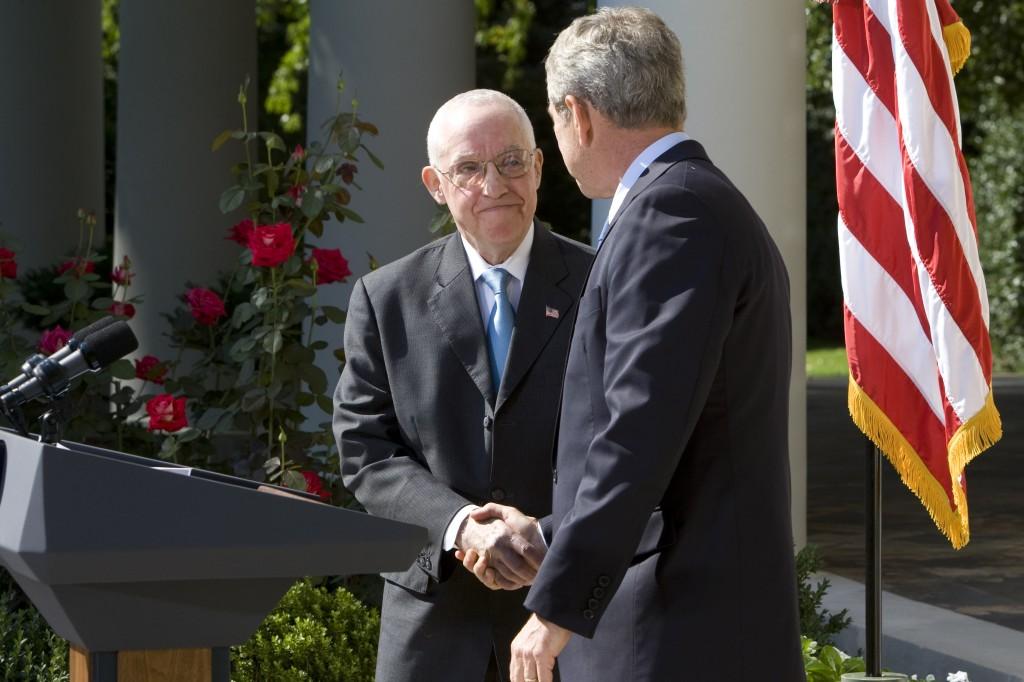The Case Against Mukasey
May 30, 2011

Published: November 15, 2007
“Mukasey” and “waterboarding” have become synonymous words these past few weeks. One is a Federal Judge appointed by the Bush administration and confirmed by the Senate to the position of attorney general. The other is an interrogation tactic that invokes disturbing images of a suspect in a black hood, strapped and gasping for breath. What brings them together? Michael Mukasey refused to classify waterboarding as a form of torture during his Senate Judiciary Committee hearing. Now, the press and many members of the Senate use the waterboarding excuse as a powerful and convenient veil to cloak their true fears: a further expansion of executive power under a president who has already abused his authority. On Nov. 6, the Senate Judiciary Committee voted 11 to 8, in favor of his nomination. Despite much opposition, Mukasey, President Bush’s nominee for attorney general received full confirmation in the Senate on Nov. 8, with a 53 to 40 vote.
This initial nod of approval given last week could not have been possible without two Democrats, Chuck Schumer from New York and Barbara Feinstein from California, who joined with all of the panel’s Republicans in the vote. Many other Democratic senators, however, take issue with Judge Mukasey regarding his statements on waterboarding. Although Mukasey has called waterboarding “repugnant,” he has said that he cannot judge the legality of the issue until he has access to classified information about such interrogation techniques. While the press had exclusively cited the waterboarding issue as the main challenge to Mukasey’s nomination, at stake are much deeper problems. Both Republican and Democratic senators are also concerned with Judge Mukasey’s view of law, regarding his embrace of expanded wartime powers for the president. These senators fear an expansion of executive power under a president who has already extended his authority. During Mukasey’s confirmation hearings, he was unusually hesitant when answering questions about the limits of executive power. When asked whether the president is required to obey federal statutes, Judge Mukasey replied, “That would depend on whether what goes outside the statute nonetheless lies within the authority of the president to defend the country.” This is a dangerous statement, which violates the most fundamental principle of the Constitution; everyone, including the commander in chief, is subject to the rule of law. Mukasey also hinted that warrantless wiretapping might be proved legal under the Constitution. Michael Mukasey, nominated to the federal bench by President Reagan, has 18 years of service as a federal judge. Mukasey presided over the 1995 trial of the ten individuals accused of plotting terrorist attacks in New York City, and sentenced Omar Abdel Rahman to life in prison for his involvement in the 1992 World Trade Center bombing. Despite the qualms over his statements regarding torture and executive power, Judge Mukasey did win the full Senate vote on his nomination, within a few weeks. Although Democrats were split on Mukasey’s nomination, many view him as the best prospective attorney general that this administration will have nominated.









